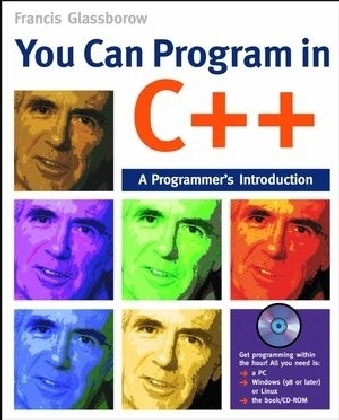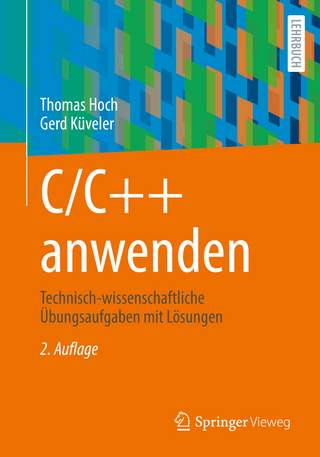
You Can Program in C++
John Wiley & Sons Ltd (Verlag)
978-0-470-01468-4 (ISBN)
- Titel ist leider vergriffen;
keine Neuauflage - Artikel merken
An interactive and fun way to learn C++, one of the most popular high-level programming languages for graphic applications * This unique, hands-on approach to learning C++ makes the experience fun and interesting by offering the opportunity for readers to get started on real coding * Features numerous examples and project ideas as well as GUI and audio extensions so readers can get instant feedback - in addition to instant gratification from producing a program that works * Written by one of the world's leading authorities on C and C++, the book includes invaluable reference sections at the end of each chapter * Discusses modern C++ idioms, which are often neglected in other publications
Francis Glassborow was chairman of the ACCU (Association of C & C++ Users) and edited the groups' principle publication throughout the 90's. He has published reviews of most C++ books on the market but doesn't confine his wisdom nor interest just to this language. He was a regular columnist for .EXE. Until this year he chaired an annual Programmers conference that regularly attracts the heavy-weights in C++ as well as other languages. He heads the UK delegation to the ISO working group committees for C and C++ and is therefore considered to be one of the world's leading authorities. He is the originator of much of the material aimed at making C++ easier to learn in the next Standard. His first book, "You Can Do It" is a motivational book teaching basic programming constructs to people with no background. It published with Wiley in 2003.
Preface. Acknowledgements. Introduction. C++ Overview. 1. Getting Started. 2. Fundamental Types, Operators and Simple Variables. 3. Looping and Making Decisions. 4. Namespaces & the C++ Standard Library. 5. Writing Functions in C++. 6. Behaviour, Sequence Points & Order of Evaluation. 7. Generic Functions. 8. User Defined Types, Part 1: typedef and enum. 9. User Defined Types, Part 2: Simple classes (value types). 10. User Defined Types, Part 3: Simple classes (homogeneous entity types). 11. Pointers, Smart Pointers, Iterators & Dynamic Instances. 12. User Defined Types, Part 4: Class Hierarchies, Polymorphism, Inheritance and Subtypes. 13. Dynamic Object Creation and Polymorphic Objects. 14. Streams, Files & Persistence. 15. Exceptions. 16. Overloading Operators & Conversion Operators. 17. Containers, Iterators and Algorithms. 18. Something Old, Something New. Appendix A: Those Who Went Before. References. Index.
| Erscheint lt. Verlag | 12.5.2006 |
|---|---|
| Verlagsort | Chichester |
| Sprache | englisch |
| Maße | 195 x 233 mm |
| Gewicht | 712 g |
| Einbandart | Paperback |
| Themenwelt | Informatik ► Programmiersprachen / -werkzeuge ► C / C++ |
| ISBN-10 | 0-470-01468-7 / 0470014687 |
| ISBN-13 | 978-0-470-01468-4 / 9780470014684 |
| Zustand | Neuware |
| Haben Sie eine Frage zum Produkt? |
aus dem Bereich


